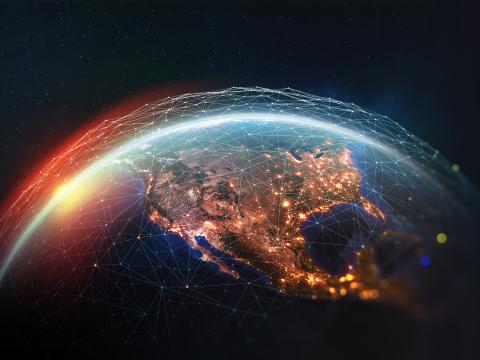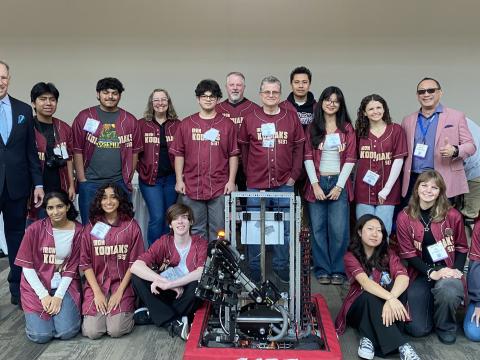President's Commentary: The Wireless Reboot
That which has taken place over the past 35 years pales in comparison to the existential change taking shape with the coming wireless revolution.
People who have come of age in the information era often believe they have experienced a landmark shift in world events and lifestyles. But that which has taken place over the past 35 years pales in comparison to the existential change taking shape with the coming wireless revolution.
Understanding this coming revolution requires thinking beyond the physical devices we carry in our pockets. Hardware does not solely define what wireless connectivity is about. The capabilities will go much further than those devices, and it is these new and expanded capabilities that will prove to be the global game changers.
The infrastructure to develop and support these capabilities will help induce greater change than that which has evolved over the past 30 years. This infrastructure includes the transmission media, the relay towers, the information technology infrastructure that will enable 5G to reach all corners of population centers and well beyond. Cloud computing will allow massive amounts of data to be ported to the edge users and machinery that will receive and act on this data from virtually anywhere on Earth.
These capabilities will be enabled by integrating technologies such as artificial intelligence (AI), machine learning (ML), big data and data analytics, to name a few. The result will be end-user data transfers at speeds unimaginable just a few years ago.
People will be able to access more data than ever before. They will be able to use innovative tools and devices to do a multitude of functions with that data. Unforeseen new technologies and capabilities will emerge, driven by user demand and creativity.
The effect of this exponential growth on the economy will be enormous. Agriculture, for example, will benefit from farmers having a broad spectrum of information immediately at their fingertips. They will adapt to climatic and environmental factors, move their products faster and rapidly adjust to market price dynamics. Smart homes will reach genius level with the Internet of Things achieving its full potential.
The economies of scale will be more precisely exploited than ever before. Easy access to information will improve business practices and productivity. Commercial costs will come down as efficiencies go up.
Telemedicine will be revolutionized, especially in the military and remote locations. Medical specialists will be able to diagnose and evaluate patients from thousands of miles away as if they were in the same room. Remote surgery will be possible as robots will assist surgeons from great distances without the latency currently extant in wireless systems. This will aid patients with life-threatening urgencies in rural hospitals as well as warfighters wounded on the battlefield.
Logistics will be changed. Work at home is possible today for many office jobs, but the advent of 5G will facilitate other types of labor as well. Workers will operate heavy machinery from remote locations because high-capacity bandwidth and low latency will allow remote control from great distances.
Education will undergo changes that, in some cases, are already underway because of the pandemic. Education will be brought to life. New methods of education, including virtual reality, will reflect the revolution in information capabilities, and these, in turn, will change the way our young people are taught and learn.
For the military, improved intelligence, surveillance and reconnaissance systems will be only part of the benefit. This new mountain of data will be processed automatically and sent immediately to users at the edge. Decision-making and sensor-to-shooter operations will take on an enhanced meaning. The same AI and ML that processes the data will lead to information and knowledge.
Real-time mission planning will speed up the decision cycle. Virtual reality will promote timely mission rehearsals. AI will support the delivery of supplies before a unit runs out of needed materiel, and on-site repairs can be made to remote locations assisted by distant subject matter experts. And autonomous vehicles can be used to replace humans and reduce the risk to life and limb.
These changes will not come without a price, however. Cybersecurity will increase in importance, as new methods and technology will need to be implemented to secure both the data and the paths it will travel. Left unchecked, the wireless revolution will also provide greater opportunities for industrial, financial, intellectual and national security espionage. Those purveyors must be stopped.
In the industrialized West, one of the favorite sayings in the 20th century was, “Money is power.” If that idiom isn’t obsolete today, its relevance is fading because the 21st-century dictum is “Information is power.” And that power will be almost as unlimited as the technologies’ potential.




Comments